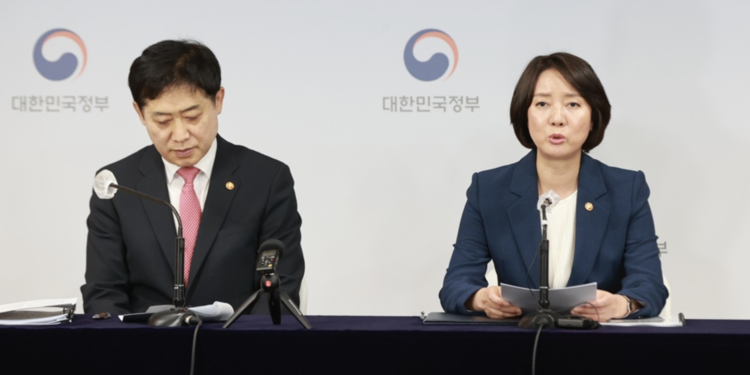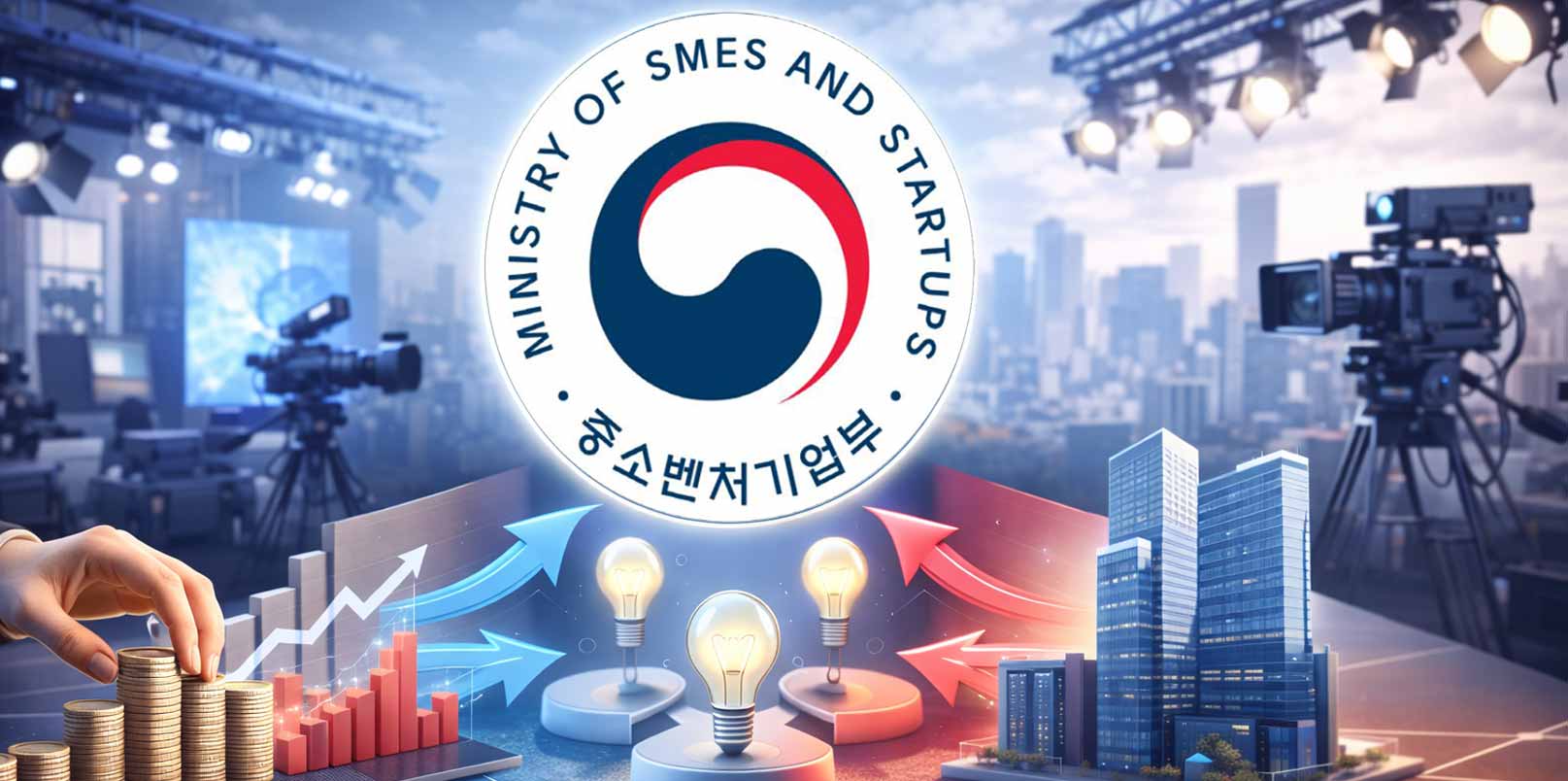The global economic slowdown and shrinking of venture investment have caused significant distress in the startup ecosystem. In South Korea, venture investment and fund formation have been on a downward trend since the second half of last year, with the first quarter of 2023 showing a 60.3% decrease in investments.
In an attempt to fill the investment vacuum, the Korean Ministry of SMEs and Startups (Minister Lee Young) and the Financial Services Commission (Chairman Kim Joo-hyun) held a meeting of ministers related to pending state affairs presided over by the Prime Minister on April 20 and announce ‘Innovative Venture/Startup Funds to Overcome the Economic Crisis and Securing Future Growth Engines’ Support and Competitiveness Reinforcement Plan.’
The government will inject additional policy funds of more than 10.5 trillion won ($7.93 billion) for the domestic venture and startup industry, which is experiencing financial difficulties due to the aftermath of the economic slowdown. But is this amount enough? The Korea Startup Forum statement states that it is a substantial sum but needs proper allocation and extra measures.
The current government plan announced includes:
- Reinforced support for each growth stage through policy finance institutions with 10.5 trillion won ($7.93 billion).
- Promoting private venture investment through creating a fund worth 2.1 trillion won ($1.5 billion) over three years to expand investment priming.
- System improvement to enhance the competitiveness of venture businesses by innovating the venture support system to support companies attracting talent and stabilizing management rights.
The South Korean government has announced a comprehensive plan to support startups at various stages of growth. The plan includes funding, loans, and other measures to help early-stage startups attract Seed to Series A investments, mid-stage startups attract Series B to Series C investments, and late-stage startups looking for M&A opportunities and global expansion.
Support for early-stage startups:
A total of 6.1 trillion won ($4.6 billion) will be sanctioned to support companies in the early growth stage. This includes 1.2 trillion won in loans, 0.2 trillion won ($150 million) in funds, and 4.7 trillion won($3.5 billion) in R&D. To keep this, the technology guarantee fund and credit guarantee fund’s guarantee-linked investment scale will be increased by 60 billion won ($45 million). The Industrial Bank of Korea has also established a subsidiary to support investment by creating a fund worth 100 billion won ($75 million) and childcare support such as consulting and networking for startups.
The Korea Technology Finance Corporation will establish a consignment manufacturing matching platform hub and fund production. It will supply 25 trillion won ($18 billion) for five years to R&D related to 12 national strategic technologies and for startups with only core technologies and no production facilities.
Support for mid-stage startups:
A total of 1.9 trillion won ($1.4 billion), including 0.9 trillion won ($687 million) in loans and 1 trillion won in funds, will be provided to companies in the mid-term growth stage. For companies experiencing financial difficulties due to a lack of follow-up investment, the Small and Medium Venture Business Corporation, Technology Guarantee Fund, and Credit Guarantee Fund will expand and supply policy finance of 350 billion won ($264 million).
Korea Development Bank and Industrial Bank of Korea have decided to promote follow-up investment by reinvesting in maturity funds by increasing the size of the second fund from 500 billion won ($377 million) to 1.5 trillion won ($1.13 billion). It is a fund that makes profits by purchasing stocks invested by other venture funds.
Support for late-growth stage startups:
For startups looking to attract investment after Series C, a total of 0.4 trillion won ($302 million), including 0.3 trillion won ($226 million) in funds and 0.1 trillion won ($75 million) in loans.
The Korean Development Bank will provide 300 billion won ($226 million) to support global expansion. Korea Venture Investment will support growth jointly with overseas policy finance institutions to promote innovative ventures in the US, Asia, and Europe. Industrial Bank of Korea will provide a special loan program worth 100 billion won ($75 million) to acquire small and medium-sized venture companies to promote small-scale M&A.
Additionally, the Korea Technology Finance Corporation will establish an M&A online comprehensive platform for companies to conduct mergers and acquisitions while minimizing M&A-related difficulties such as technology theft and cost burden and supporting acquisition funds. The obligation to invest 40% or more new stocks for M&A and secondary venture funds will be abolished. For M&A venture funds, the restriction on investment in listed companies is limited.
Promotion of private venture investment
Policy financial institutions will create a fund worth 2.1 trillion won ($1.58 billion) over three years to expand investment priming. The Industrial Bank of Korea will invest over 2 trillion won ($1.5 billion) for three years in funds for investment in ventures and startups in strategic industries. Capital market-related institutions such as Korea Exchange and Korea Securities Finance will also invest 100 billion won ($75 million) in funds to support KONEX-listed companies and companies promoting the listing. To further support venture investment, the limit on bank venture fund investment will be doubled from 0.5% to 1% of equity capital. A new tax deduction for assets by major corporations will be established to promote private venture capital funds. Regulations will also be eased to allow corporate venture capital firms to invest in overseas subsidiaries of domestic startups on the same basis as domestic companies. These measures aim to create a more supportive and favorable environment for startups to grow and thrive in South Korea.
System improvement to enhance the competitiveness of venture businesses
The Korean government plans to expand the target for granting stock options to holders of degrees and experience and introduce limited multiple voting rights to attract large-scale investments without fear of share dilution. Additionally, they will upgrade the evaluation index to reflect industry characteristics such as bio and IT and abolish the subset of the Venture Business Act in 2027 to support the stable growth of venture companies. The government also plans to simplify the venture investment management supervision system by streamlining administrative work and increasing the validity and reliability of venture statistics by including statistics of various investment organizations.
Minister Lee Young said, “While promptly implementing the measures announced today, we will strictly monitor and respond to the situation to minimize the impact of the slump in venture investment. Without a hitch, we will prepare additional support measures, such as promoting smart manufacturing innovation and comprehensive startup Korea measures.”
Kim Joo-hyun, chairman of the Financial Services Commission, said, “The FSC and the Ministry of SMEs and Startups gathered their capacities through policy cooperation and came up with a meaningful comprehensive countermeasure. As venture companies are the basis for securing future competitiveness of our economy, we will continue to communicate with the Industry frequently and provide necessary support and system improvement.”
Reaction from Industry on measures
The Korea Startup Forum welcomed the government’s announcement to provide financial support for innovative ventures and startups and strengthen their competitiveness.
However, the forum opined that in the amount of funding, there is a big difference by growth stage:
- 6.1 trillion won ($4.6 billion) in the early stage.
- 1.9 trillion won ($1.4 billion) in the mid-term.
- 400 billion won ($300 million) in the latter phase.
According to a Korea Startup Forum’s press statement, “It is more difficult for ventures and startups to receive investment from the early stage to the mid-to late-stage stage, and considering the recent economic situation, more support is needed for mid- and late-stage growth stage companies.”
“In addition, the increase in new investment in the Fund of Funds, which the startup ecosystem has continuously requested, was not included in this announcement. It is hoped that the increase in new investment in the fund will be reflected without fail in the process of announcing and reviewing measures in the future,” the statement added.






